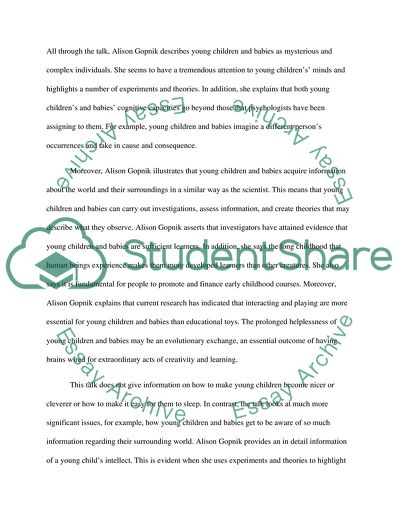Cite this document
(“Learning in Alisons Gopnik View Essay Example | Topics and Well Written Essays - 1000 words”, n.d.)
Retrieved from https://studentshare.org/education/1613726-learning-in-alisons-gopnik-view
Retrieved from https://studentshare.org/education/1613726-learning-in-alisons-gopnik-view
(Learning in Alisons Gopnik View Essay Example | Topics and Well Written Essays - 1000 Words)
https://studentshare.org/education/1613726-learning-in-alisons-gopnik-view.
https://studentshare.org/education/1613726-learning-in-alisons-gopnik-view.
“Learning in Alisons Gopnik View Essay Example | Topics and Well Written Essays - 1000 Words”, n.d. https://studentshare.org/education/1613726-learning-in-alisons-gopnik-view.


